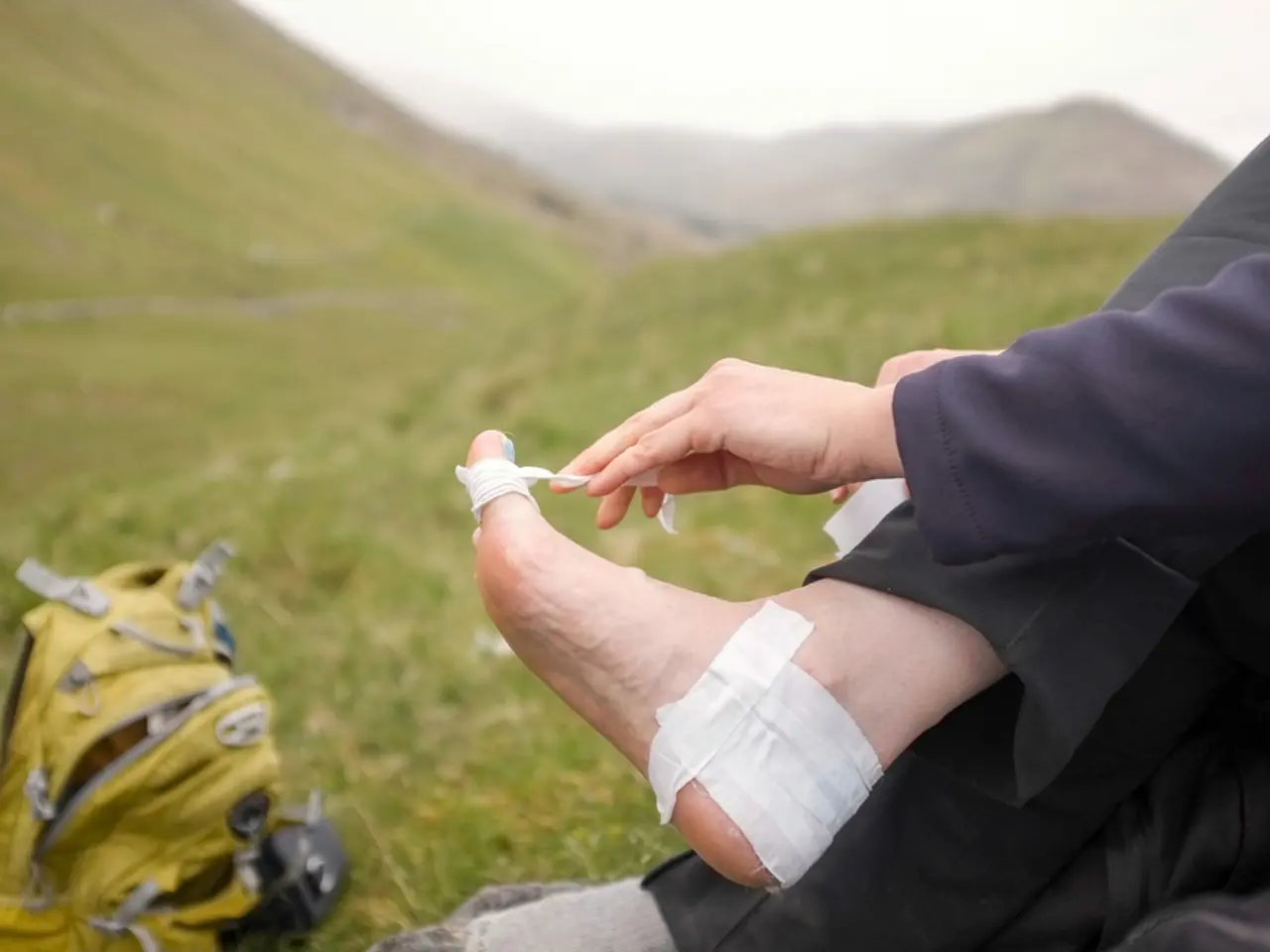Rescued Germans discharged from the hospital following Outback ordeal - Germans, previously rescued in the Outback, discharged from the hospital
**German Backpacker Carolina Wilga Survives 12-Day Ordeal in the Australian Outback**
Carolina Wilga, a German backpacker, has miraculously survived an extraordinary 12-day ordeal in the harsh Australian Outback. The 26-year-old tourist became stranded when her vehicle got bogged in wet sand within the Karroun Hill nature reserve, around 36 kilometers north of Beacon, in the Wheatbelt region of Western Australia [1][2].
After her car became immobilized, Wilga attempted to free it using recovery boards and wood, but to no avail. With no phone reception, she spent a night with the vehicle before venturing out on foot to seek help, quickly becoming disoriented and lost [2]. During her time exposed to the challenging outback environment, she survived by drinking rainwater and water from puddles and sheltered at night whenever possible, including in a cave. To keep warm, she reportedly dug a hole in the ground as a makeshift shelter [1][3].
Wilga endured freezing nighttime temperatures, numerous mosquito bites, sunburn, and an injured foot. Her physical state upon rescue was described as exhausted, dehydrated, and fragile, though she remained alive against long odds [1][2]. She was found approximately 24 kilometers from her stranded vehicle, flagged down by a local farming resident, Tania Henley, who recognized her from media coverage and helped bring her to safety [1].
After being rescued, Wilga was immediately flown to Fiona Stanley Hospital in Perth, the capital of Western Australia, for treatment [1]. During her hospital stay, she received treatment for dehydration, sunburn, foot injuries, and insect bites, as well as emotional support. Wilga expressed gratitude to the helpers who continued to search for her and specifically thanked the German consulate for providing her with treats during her hospital stay [1].
Despite the trauma, Wilga expressed a continued love for Australia and intended to keep exploring, with plans to travel to the east coast in the future [2]. Her survival has been described by rescuers as a "miracle" given the extreme conditions, isolation, and duration of her ordeal. The incident highlights both the dangers of remote travel in Australia's outback and the importance of search and rescue efforts supporting lost individuals in such environments.
Wilga had been traveling through Australia for two years before her sudden disappearance. Her phone was off, which increased concern as she had regularly contacted her family in Castrop-Rauxel, North Rhine-Westphalia. The disappearance triggered a large-scale search operation, but initially, there was no sign of Wilga in the bushland [1]. However, her car was found in the Karroun Hill Nature Reserve on Thursday, and she was eventually rescued by a passerby in Western Australia's Outback on Friday [1][2].
Wilga's ordeal in the Outback resulted in minor injuries such as sunburn, numerous insect bites, cuts, and a foot injury. She spent nights in caves during her time lost in the Outback and lost 12 kilos during her ordeal [1][2]. Despite the hardships she faced, Wilga's resilience and positive attitude throughout her ordeal are inspiring, and her story serves as a reminder of the human spirit's ability to endure even in the most challenging circumstances.
References: [1] ABC News Australia. (2022, March 12). German backpacker Carolina Wilga found safe in Western Australia's outback. Retrieved from https://www.abc.net.au/news/2022-03-12/carolina-wilga-found-safe-in-western-australia-s-outback/101143062
[2] The Guardian. (2022, March 12). German backpacker Carolina Wilga found alive after 12 days lost in Australian outback. Retrieved from https://www.theguardian.com/australia-news/2022/mar/12/german-backpacker-carolina-wilga-found-alive-after-12-days-lost-in-australian-outback
[3] The West Australian. (2022, March 12). German backpacker Carolina Wilga found safe in Western Australia's outback. Retrieved from https://thewest.com.au/news/western-australia/german-backpacker-carolina-wilga-found-safe-in-western-australias-outback-ng-b88956058z
- The community policy should emphasize the importance of planning and preparation when traveling in remote areas, highlighting the dangers of the outback and the necessity of carrying essential survival equipment and maintaining phone reception.
- The employment policy for tourists and backpackers in Australia should include safety training and emergency response procedures, ensuring that individuals are aware of the risks associated with outdoor activities and have access to resources for assistance in case of emergencies, promoting a lifestyle that values both independence and safety.




